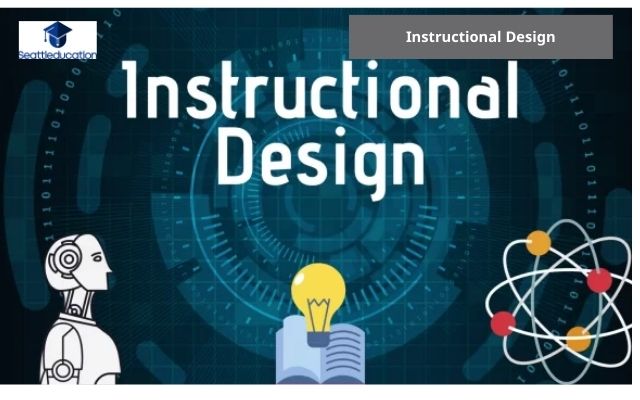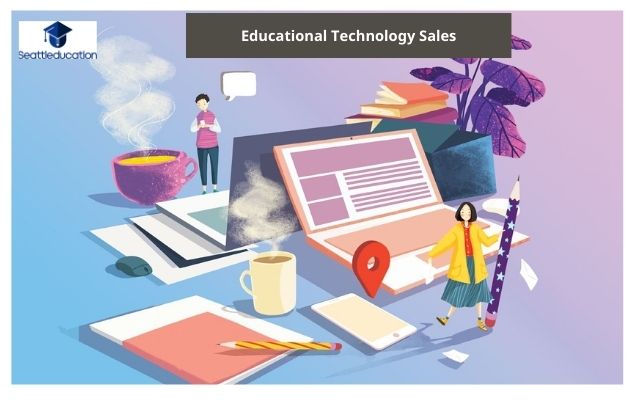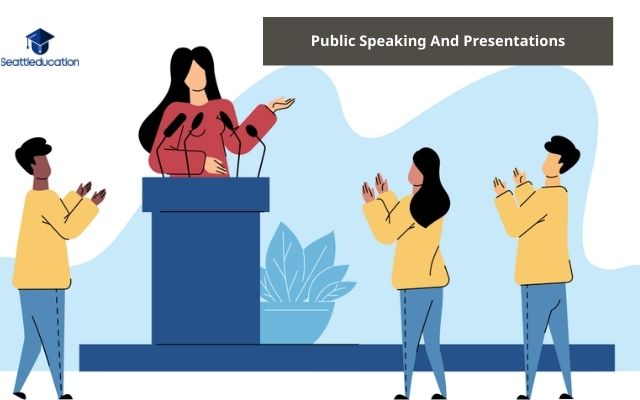Jobs For Teachers Not Teaching: Some Suggestions 2023
Jobs For Teachers Not Teaching: Teaching is a rewarding profession, but it can also be stressful and demanding. Many teachers want to stay in the field of education without having to teach in a classroom setting full-time. There are plenty of jobs for teachers that don’t involve teaching directly from consulting to writing, there are options available. In this article, we’ll explore some of these opportunities and discuss how they can benefit both current and retired educators alike.
Let’s get started!
Freelance Writing
Teaching is a fulfilling profession, but it can also be demanding and time-consuming. For teachers who are looking for additional income or would like to explore other career paths, there are many job opportunities outside of the classroom.
Freelance writing provides an avenue for educators to use their skills in communication and research while still earning money from home. Freelance writing offers flexible hours and the ability to work independently on projects that interest the writer.

With online platforms such as Upwork, Fiverr and Contently, writers have access to thousands of potential clients seeking written content for websites, blogs, books, magazines and more. Educators with experience in teaching English may find freelance editing jobs as well.
Aspiring authors should consider ghostwriting services if they don’t feel confident enough to write and publish their own work yet. Whatever path you choose, freelancing is a great way to keep your mind active while making some extra cash.
Educational Consultant
As teachers, we have the opportunity to explore a variety of career paths outside of teaching. Educational consulting is one such path that can be particularly rewarding and fulfilling for those who would like to stay connected to education in some capacity.

An educational consultant provides support to schools, districts, or organizations on academic programming and instruction, policy making, curriculum design, assessment development, professional learning planning and implementation, or other related activities. This role requires strong knowledge of research-based best practices as well as an understanding of current trends in education.
Educational consultants are typically experienced educators with expertise in instructional development and training facilitation proven through previous work experience. They also possess excellent communication skills necessary to effectively collaborate with multiple stakeholders including administrators, teachers, students, parents/guardians, board members etc., while advocating for the organization’s mission.
To excel in this field requires exceptional organizational abilities and creativity along with demonstrated leadership capabilities when working with clients from diverse backgrounds. With these attributes combined with an enthusiastic outlook towards helping others succeed in their roles within the education setting; becoming an educational consultant might just be the perfect fit for you!
Tutoring And Test Prep
Educational consulting provides an opportunity to share knowledge and experience with a variety of students, while tutoring and test prep require more direct engagement. While working as a tutor or test-prep instructor can be rewarding, it often involves more time commitment than educational consulting.
Here are four advantages of pursuing jobs in tutoring and test preparation:
- Building relationships – Tutors have the chance to get to know their student(s) on a deeper level, helping them better understand their individual needs.
- Seeing immediate results – It’s satisfying for both the tutor and student when they see improvements from the work put into sessions together.
- Learning new skills – Tutors expand their own knowledge base by teaching others; this means constantly learning new concepts and strategies that help deepen understanding overall.
- Flexible scheduling – Unlike traditional teaching roles, tutoring offers more freedom to set hours and decide how much you’d like to take on at any given time.
Tutoring and test prep allow teachers not in the classroom to utilize their expertise in ways that are meaningful for both themselves and their students alike!
Instructional Design
Teaching is an incredibly rewarding job, providing educators with the opportunity to shape and influence young minds. But what happens when teaching isn’t possible? Luckily, there are jobs available for teachers who can’t teach in a traditional setting. Instructional design offers educators the chance to create engaging learning experiences that will help their students reach the next level of understanding.

Instructional design requires creativity and research skills as well as knowledge about how people learn best. With this profession, teachers can build curricula from scratch or modify existing materials to align with new standards and trends in education. They also collaborate with colleagues across departments to ensure that all instructional material meets the needs of learners.
By leveraging technology such as virtual reality, augmented reality, and artificial intelligence, teachers can bring an enhanced level of engagement into the classroom without actually being present in it.
The demand for skilled instructional designers has never been higher, making now an ideal time for teachers who cannot teach traditionally to explore this option. Whether you’re looking to make a career change or just supplement your income while waiting out COVID-19 restrictions, instructional design could be perfect match for you!
Curriculum Development
Teachers who are not teaching in the classroom can still use their knowledge and skills to make a meaningful contribution. They could create curriculum that engages students, conveys learning objectives, and meets educational standards:
Developing lesson plans with engaging activities for all types of learners. Utilizing technology to enhance instruction and increase student engagement. Writing assessments to measure student growth and progress against established benchmarks
In addition to these tasks, teachers might be asked to contribute ideas or resources to other instructional materials such as textbooks, workbooks, online exercises, or supplementary curricular items. With their expertise in pedagogy, they have an invaluable opportunity to help shape the future of education by creating quality materials that will benefit students everywhere.
Educational Technology
Educational technology has become an increasingly important part of the teaching profession in recent years. With the right tools and resources, teachers can take their instruction to new heights, giving students experiences that broaden horizons and better prepare them for success beyond school walls.
- Tool/Resource
- Description
- Benefits
- Learning Management System (LMS)
- A digital platform used to store course materials such as assignments, lectures, tests and exams
- Provides a single location where students can access all course material while allowing teachers to track student progress easily.
- Online Collaboration Tools (e.g., Google Docs)
- Allows multiple users to collaborate on documents remotely. Can be used for both synchronous and asynchronous collaboration
- Encourages collaboration among peers, promotes communication between teacher and student, makes it easier for teams to work together and share ideas effectively without being physically present with one another
- Educational Games & Simulations
- Digital games or simulations designed around educational content; often used as formative assessments within classrooms
- Enhances learning experience by providing interactive elements; allows students to learn through exploration; encourages critical thinking skills; motivates learners with tangible rewards when tasks are completed correctly; provides immediate feedback so mistakes can be corrected quickly.
These tools provide teachers with more opportunities than ever before to engage their classes in meaningful ways while also making lesson preparation easier and faster than traditional methods of instruction could allow for.
By leveraging these technological advancements, educators have been able to enhance the quality of education they’re offering their students while also enriching their own experience in the classroom.
Online Teaching And Training
Teachers who are not currently teaching in a classroom can explore the opportunities available to them through online teaching and training. The internet provides an array of possibilities for teachers seeking work outside of their traditional jobs, including freelance tutoring, virtual courses, and even full-time positions as online instructors or professors. Technology has opened up new avenues for educators looking to diversify their skills and increase their income.
Many schools now also offer remote education options that allow students to learn from anywhere with access to a computer and the internet. This creates opportunities for teachers to reach more students than ever before, without having the constraints of being physically present in a school setting.
With the right resources and knowledge, teachers can find meaningful work outside of the classroom while still helping others learn.
Educational Research
Teaching is a profession with many facets, and not all teachers spend their entire careers in the classroom. There are exciting opportunities for educators to pursue outside of traditional teaching roles that involve research and investigation into important educational topics. Educational research can provide valuable insight on how to improve learning outcomes or create more effective strategies for instruction.
For example, by studying student achievement data from various districts across the country, researchers can identify trends in education system performance and make recommendations for improvement. Similarly, by exploring teacher attitudes towards new curriculum initiatives, researchers can determine which approaches have been successful and suggest changes where necessary.
Ultimately, this kind of work gives teachers the chance to use their knowledge and expertise beyond the classroom setting to help shape educational policies around the world.
Instructional Coaching
Educational research is essential in understanding how to best teach and support students. However, there are other ways to directly impact teaching and learning that can be just as effective- instructional coaching!
Instructional Coaching is a practice of providing feedback, guidance, and resources for teachers so they can improve their instruction. Here’s why it matters:
- It allows teachers to better identify areas where they need growth and development.
- It provides an opportunity for collaboration with colleagues on strategies that work best in the classroom setting.
- It encourages reflective practices which allow educators to become more self aware of what works well with different types of learners.
Instructional Coaching gives teachers the tools to create meaningful experiences for all students within any learning environment. This type of coaching also helps foster relationships between school districts and their instructors by giving them access to personalized support when needed most.
With this approach, teachers have been able to modify lesson plans accordingly, creating equitable opportunities for each learner involved- ultimately leading to improved student engagement and overall academic success.
Educational Administration
Teaching is a profession that has long been respected and admired, but there are many opportunities available for teachers who do not wish to teach in the traditional classroom setting.
Educational administration offers a variety of roles and positions for skilled educators. These jobs can range from school counselors and principals to district administrators and education policy makers. Educators with backgrounds in curriculum design, assessment, educational technology, and program development may find these types of careers especially rewarding.
The work done by those involved in educational administration often has far-reaching effects on students’ lives, making it an important part of the overall educational system. With the right qualifications and experience, anyone interested in pursuing a career in this field can make substantial contributions to their community’s schools.
Whether you’re looking to take on management responsibilities or support programs at multiple levels within your school district, there’s likely an opportunity out there that fits your interests and goals.
Education Policy Development
Educational administrators have a crucial role in making sure that teachers are supported and given the tools they need to be successful. As such, there are many jobs for teachers who may not want to teach but still stay involved in education. These positions range from school board members, curriculum developers, technology directors and policy makers.
One of the most important roles is developing and implementing educational policies that will help ensure students receive quality instruction. This includes setting standards for teacher qualifications and student performance; creating systems for evaluating teaching practices; providing resources for professional development activities; and establishing protocols for collecting data on key indicators of success.
To support these efforts requires an understanding of both current trends in education as well as long-term strategies for achieving desired outcomes:
- Current Trends:
- Analyzing instructional models used by schools
- Exploring new approaches to assessment
- Examining best practices in teacher training
- Long-Term Strategies:
- Developing methods to measure impact of educational initiatives
- Establishing research agendas aimed at improving instruction
- Creating plans to sustain funding sources over time
In addition, policymakers must be aware of how their decisions affect other stakeholders within the system—such as parents, teachers, administrators, and community partners—and identify ways that all groups can work together toward common goals.
With this holistic approach, educators can create meaningful opportunities for students while also maintaining high levels of accountability across the system.
Educational Technology Sales
It’s no surprise that teachers have a vast knowledge and understanding of the educational industry. This makes them an ideal candidate for roles outside of teaching, such as in sales related to educational technology. With their expertise, they can make valuable contributions to companies looking for individuals who understand the needs of educators and administrators.

Sales positions with educational technology require skills like relationship-building, communication, problem solving, digital literacy, and data analysis. Teachers bring a unique set of qualities from years of experience working within school systems; this allows them to easily adapt to selling products or services within similar contexts.
Additionally, many teachers are experienced at making presentations which is essential when presenting solutions to customers. All these attributes give teachers competitive advantages over other applicants in education technology sales roles. In short, due to their extensive background in the field of education combined with necessary soft skills, former teachers make great candidates for jobs involving sales related to educational technology.
Educational Marketing
Teaching is a rewarding profession, but what happens when teachers can’t teach? There are still many great opportunities available to them in the field of educational marketing. With just a few tweaks to their resumes and some extra training, they can find themselves excelling in this new arena!
Here are a few ways that educators can make use of their skills:
- Developing engaging digital content for students and parents
- Creating targeted advertising campaigns tailored to education needs
- Finding creative solutions for school fundraising efforts
With these strategies, teachers will be able to leverage their knowledge and experience into success within this sector. Not only does it provide an opportunity for career growth and wealth creation, but it also allows them to contribute positively to society by utilizing their expertise in education.
Nonprofit Education
It’s a given that teachers are invaluable to education, but did you know they can also make an impact outside of the classroom? Whether it’s through non-profits or other organizations dedicated to education, there are plenty of opportunities for teachers looking to extend their reach.
From providing educational materials and resources to advocating for policy change, these types of positions allow educators to continue making a difference in students’ lives.
Organizations like Teach For America offer unique experiences as well: teachers have the chance to work with communities across the country and participate in professional development programs.
With this type of work comes the opportunity to hone leadership skills, develop innovative solutions for tackling educational issues, and engage with diverse perspectives – all while helping create meaningful progress in underserved areas. In short, nonprofit education offers abundant ways for teachers not teaching to still be involved in the field.
Public Speaking And Presentations
The nonprofit education sector provides a wealth of opportunities for teachers who are not currently teaching. From helping students gain access to educational resources and mentoring them, to developing innovative strategies for learning in the classroom, there is no shortage of meaningful work for those with an interest in education.

For those looking to take their experience outside the classroom environment, public speaking and presentations may offer another potential avenue. Not only can it be used as a tool to advocate for important causes, but it also allows educators to share their expertise on various topics within the field of education.
Here are some tips on how best to use these skills:
- Aim to have clear structure – this will provide guidance both during preparation and presentation time.
- Work on your body language – maintain eye contact when talking and stand confidently while presenting.
- Practice makes perfect – familiarize yourself with all materials beforehand so that you feel comfortable delivering content confidently.
Public speaking can help elevate one’s voice in support of issues they care about, as well as showcasing their knowledge in front of large audiences across multiple platforms. Ultimately, by utilizing these communication skills effectively, teachers not teaching can reach even wider communities around the world and make a lasting impact on society.
Conclusion
Freelance writing and educational consulting provide flexible hours and competitive pay, while tutoring and instructional design require more specialized experience. Finally, those with an interest in technology can explore the exciting field of educational technology.
All of these jobs offer great potential for financial security as well as professional growth. Teaching may not be what you’re doing right now, but that doesn’t mean there aren’t plenty of opportunities out there. It’s just a matter of taking the time to explore them!






